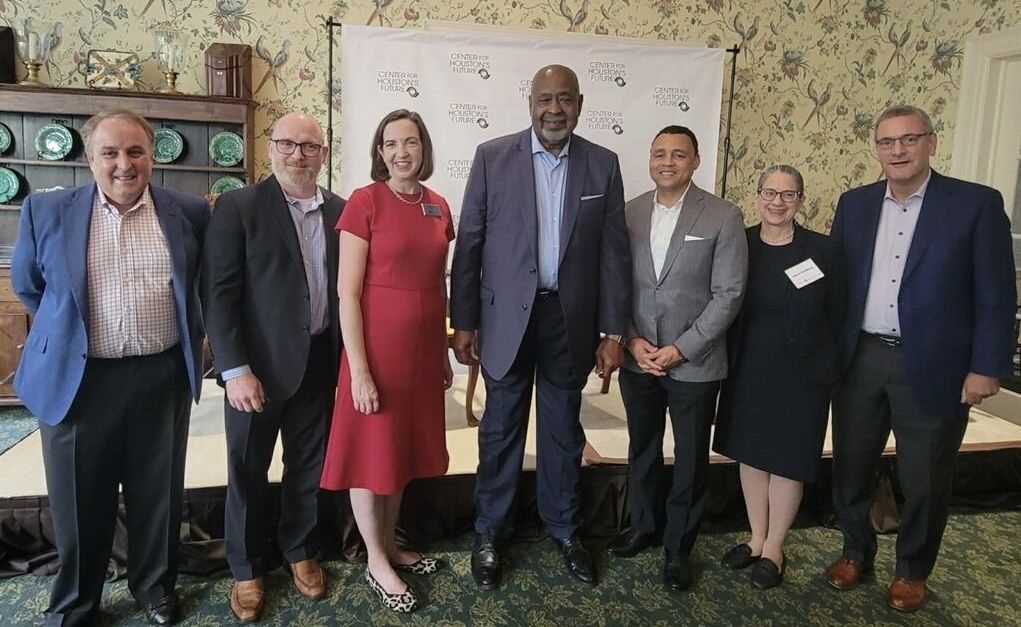Artificial intelligence is now everywhere. It is mentioned in every startup pitch deck, and every corporate roadmap claims to use it. However, many early-stage businesses struggle with the simple question, “What does AI actually mean for my business?”
In a recent podcast episode of EnergyTech Startups, Merab Momen, founder of AI CTO Services and a long time AI practitioner, explains why most founders misunderstand AI, how startups can practically apply it and why Houston is quietly becoming a serious hub for AI-driven innovation.
Filling the AI Leadership Gap
Merab’s career has spanned decades of technology transitions. He worked on neutral networks in the 1990s, constructed computer vision systems long before they were common, and helped install AI solutions inside huge industrial companies. However, he noticed a huge problem when generative AI started to explode into the mainstream-The requirement of a real partner by the founders for AI integration but inability to rely on a full-time CTO and project-based consultants.
“I really needed something which is much more engaging where I can give that partner-level advice to the founders,” he said. By giving firms on-demand access to high-level AI knowledge and expertise, his methodology enables them to analyse tools, steer clear of cost blunders and eventually transition to a permanent technology leader when the time is right.
AI is Older than Most People Think
Despite its recent rise in popularity, AI is nothing new. AI actually began in the 1950s. Merab in his conversation explained how he worked on his first AI project back in the year 1996 that worked perfectly, but the processing power wasn’t just there to make it practical. He continued how he utilized the swarm intelligence models to optimize supply chains, now referred to as MLPOs and data engineering.
From Language Models to Physical World
Much of the public conversation about AI revolves around chatbots and text generation. But Merab sees far greater potential in AI’s interaction with the physical world, especially in industrial settings. He emphasized edge computing and vision language models (VLMs) as significant advances in manufacturing and energy. This physical shift is opening doors for new opportunities for robotics, automated inspections, and industrial safety applications. Merab added that Houston is uniquely positioned for this transition.
Why Houston has an AI Advantage
Silicon Valley may dominate the AI headlines, but Merab believes Houston’s advantage lies beneath the surface. The city doesn’t lag in AI utilization; it just operates in industries where results show differently.
Machine learning isn’t new to Houston’s core industries. Energy companies, manufacturers, logistics providers, and healthcare systems have been using advanced analytics for decades. The difference lies in them innovating in industrial sectors rather than consumer technology.
What’s Next
With the AI CTO Services growing, Merab is working with startups across industries to deploy AI in practical, business-first ways.
He is more interested in assisting founders in finding answers to critical issues than following new trends.
For Houston’s energy and climate tech community, it needs to transform AI enthusiasm into real-world impact.
Listen to the full conversation with Mehrab Momin on the Energy Tech Startups Podcast to learn more.
---
Energy Tech Startups Podcast is hosted by Jason Ethier and Nada Ahmed. It delves into Houston's pivotal role in the energy transition, spotlighting entrepreneurs and industry leaders shaping a low-carbon future.






 Photo by Laura Goldberg/Center for Houston's Future on
Photo by Laura Goldberg/Center for Houston's Future on 



